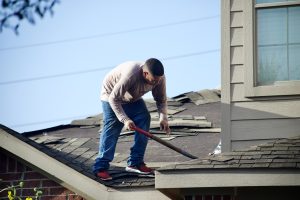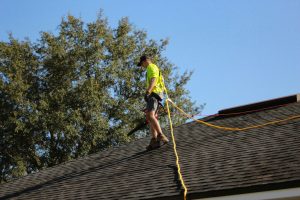When it comes to hiring a roofing repair contractor for your next project, several steps need to be taken to ensure you select the right professional. Here is a structured approach:
Find the Top 10 Roofers in Auckland, NZ.
Finding the top roofers in Auckland, New Zealand, can be essential for both residential and commercial property owners seeking quality roofing services. The city, known for its dynamic weather conditions, demands robust and reliable roofing solutions. Various sources offer insights into the leading roofing contractors in the region:
- Auckland Roofing Solutions: They are recognized for their quality workmanship, reasonable pricing, and excellent customer service. They offer a full range of roofing services and are highly recommended for new roofing projects
- Roofing West Auckland: Part of the Auckland Roofing Solutions group, they are known for delivering permanent solutions to roofing problems, indicating their expertise in handling complex roofing challenges
- MoneyHub NZ: They provide a guide to selecting roofing contractors in Auckland, including tips on getting the best price for roofing replacement or repair. They also list 10 reliable Auckland roofing companies, suggesting a variety of options for different roofing needs
- Rightway Roofing: Located at 24 Seaforth Avenue, Auckland, they come highly recommended for their services. Rightway Roofing specializes in various types of roofing, including replacements of corrugated iron roofs.
- Kiwi Roof Masters: This Auckland-based company offers a one-stop-shop for top-quality roofing solutions, including roof replacements, repairs, and new installations. They are known for their expert team and are keen on providing reliable roofing for both homes and businesses
- My Roofers Auckland: Top company for a roofing contractor in Auckland.
Selecting the right roofer in Auckland involves considering various factors such as the type of roofing project, budget, and specific service needs. It’s advisable to request quotes and estimates from multiple contractors to compare and make an informed decision.

About Auckland
Auckland, located in the North Island of New Zealand, is the country’s largest and most populous urban area. Known for its vibrant cultural scene and diverse population, Auckland is surrounded by beautiful beaches, hiking trails, and a dozen dormant volcanic cones. It’s a major city in the Pacific region and plays a significant role in New Zealand’s economy. The city’s landscape is characterized by its harbor, numerous parks, and the iconic Sky Tower. Auckland’s mild climate, with warm summers and mild winters, makes it an attractive destination for both tourists and residents. This city is also a hub for arts, commerce, education, and tourism, offering a rich blend of natural and urban experiences.
1. Research and Shortlist Roofing Contractors in Auckland
- Gather Recommendations: Start by asking friends, family, or colleagues for referrals. Personal recommendations can often lead to reliable contractors.
- Online Reviews and Ratings: Check online platforms like Yelp, Google Reviews, and the Better Business Bureau for ratings and feedback on local roofing contractors.
- Verify Business Credentials: Ensure the contractors are licensed, insured, and have a good standing in the industry.
2. Evaluate the Auckland, NZ Roofing Contractor Qualifications
- Experience: Consider the number of years the contractor has been in business. Longevity can be a sign of experience and reliability.
- Specialization: Some contractors specialize in specific types of roofing materials or repairs. Choose one that aligns with your project needs.
- Portfolio of Work: Request to see a portfolio of their past projects to assess the quality of their work.
3. Get Detailed Quotes from a Roofing Company in Auckland, NZ
- Scope of Work: Ensure the quotes include a detailed description of the work to be done, materials used, and timeframe.
- Cost Breakdown: Look for an itemized cost breakdown that includes labor, materials, and any additional charges.
- Payment Terms: Understand the payment schedule and terms before signing any contract.
4. Check References and Past Work of Roof Repair in Auckland, NZ
- Contact Previous Clients: If possible, speak to former clients to get feedback on their experience with the contractor.
- Inspect Completed Projects: Visiting a recently completed project can give you a firsthand look at the contractor’s workmanship.
5. Review and Sign Contract with Auckland Roofing Contractor
- Contract Details: Ensure the contract includes all aspects of the project, including start and end dates, warranty information, and a detailed scope of work.
- Clarify Guarantees and Warranties: Understand what is covered under the contractor’s warranty and for how long.
- Read Before Signing: Never sign a contract without thoroughly reading and understanding all its terms and conditions.
List of Top 3 Auckland, NZ Roofers.
Selecting the right roofing repair contractor is crucial for the success of your project. Take your time to research, evaluate, and communicate with potential contractors. A well-informed decision will lead to a quality repair that lasts for years.
Trust The Experienced Roofers in Auckland For Your Home And Business
When considering roofing services for your home or business, placing your trust in experienced roofers is essential for ensuring quality and reliability. Here’s why experienced roofers stand out and how they can benefit your roofing project:
1. Benefits of Hiring Experienced Auckland Roofers
- Quality Workmanship: Experienced roofers have honed their skills over many projects, which translates into high-quality work.
- Deep Industry Knowledge: They are well-versed in various roofing materials, techniques, and the latest industry standards.
- Problem-Solving Skills: With their extensive experience, they can quickly identify and solve complex roofing issues.
- Reliability: Established roofers have a reputation to maintain, often leading to more reliable and professional services.
2. Services Offered by Experienced Roofing Companies in Auckland.
- Inspection and Consultation: Comprehensive roof inspections and professional advice on the best course of action.
- Installation and Replacement: Skilled in installing various types of roofing systems with precision.
- Repair and Maintenance: Efficiently addressing leaks, damages, and wear-and-tear to extend the life of your roof.
- Custom Solutions: Tailoring roofing solutions to meet the specific needs of your home or business.
3. How to Verify Roofer Experience
- Check Credentials: Look for licensing, insurance, and certifications that validate their expertise.
- Review Portfolio: Examine their past projects to assess the scope and quality of their work.
- Read Testimonials: Customer reviews can provide insights into their work ethic and customer service quality.
- Ask for References: Request references from previous clients to get firsthand accounts of their experience.
4. Cost Considerations
- Transparent Pricing: Experienced roofers typically provide detailed and transparent quotes.
- Value for Money: While they may not be the cheapest, their expertise often results in longer-lasting roofing solutions, providing better value in the long run.
- Warranty and Guarantees: They often offer warranties on their work, ensuring peace of mind.
 Trusting experienced roofers for your home and business roofing needs means investing in quality, reliability, and peace of mind. Their expertise, coupled with a commitment to excellence, ensures your roofing project is in capable hands.
Trusting experienced roofers for your home and business roofing needs means investing in quality, reliability, and peace of mind. Their expertise, coupled with a commitment to excellence, ensures your roofing project is in capable hands.
When Will I Need an Auckland Roofing Contractor?
Identifying the right time to call a roofing contractor is crucial for maintaining the integrity and longevity of your roof. Understanding the common scenarios where professional roofing services are necessary can save you from costly repairs in the future.
1. Signs That Indicate the Need for a Roofing Contractor
- Age of the Roof: Most roofs have a lifespan of 20-25 years. If your roof is nearing this age, it’s wise to have it inspected.
- Visible Roof Damage: Look for missing, cracked, or curling shingles, which are clear indicators of wear and tear.
- Leaks and Water Damage: Water stains on your ceilings or walls often signal a leaky roof that needs immediate attention.
- Sagging Roof Deck: A sagging roof is a serious issue that indicates structural problems.
- Moss and Algae Growth: While it may seem cosmetic, moss and algae can indicate moisture issues in your roof.
2. Situations Requiring Immediate Attention
- After a Severe Weather Event: Post-storm inspections are crucial to identify and repair any damage caused by high winds, hail, or heavy rain.
- In Case of Emergency Repairs: Sudden damage, like a fallen tree on your roof, requires immediate professional intervention.
- Before and After Winter: Harsh winter conditions can exacerbate existing roof problems, making inspections before and after the season essential.
3. Preventative Maintenance
- Regular Inspections: Schedule annual or bi-annual inspections with a roofing contractor to catch issues early.
- Gutter Cleaning and Maintenance: Keeping gutters clean and functional helps prevent roof and water damage.
- Debris Removal: Regularly remove debris like leaves and branches from your roof to prevent moisture accumulation.
4. Long-term Considerations
- Roof Upgrade for Energy Efficiency: Consider hiring a contractor to upgrade your roof for better insulation and energy efficiency.
- Home Renovation Projects: If you’re planning major renovations that affect the roofline or structure, consulting a roofing contractor is advisable.
Knowing when to engage a roofing contractor is key to protecting your property. Regular maintenance, timely repairs, and professional inspections are vital to ensure the health and longevity of your roof.
Roofing Contractor Qualifications
Selecting a qualified roofing contractor is vital to ensure the safety, quality, and durability of your roofing project. Understanding the key qualifications and credentials that a reputable roofing contractor should possess can guide you in making an informed decision.
1. Licensing and Certification
- State Licensing: Roofing contractors should be licensed in the state they are operating in. This ensures they meet the state-specific legal and professional standards.
- Professional Certifications: Certifications from roofing associations or manufacturers indicate specialized training and adherence to industry standards.
2. Insurance and Bonding
- Liability Insurance: This protects homeowners from damage caused by the contractor during the roofing project.
- Workers’ Compensation Insurance: Ensures coverage for any injuries workers might sustain on the job.
- Surety Bonding: Bonding protects the homeowner in case the contractor fails to complete the job or fails to meet other financial obligations, like paying for permits or subcontractors.
3. Experience and Reputation
- Years in Business: A contractor with several years of experience is often a more reliable choice.
- Portfolio of Past Work: Reviewing their previous projects helps assess their capability and quality of work.
- Customer Reviews and Testimonials: Feedback from previous clients can provide insights into their work ethic and customer satisfaction.
4. Knowledge of Local Building Codes
- Compliance with Local Regulations: A qualified contractor should be familiar with local building codes and permit requirements to ensure legal compliance.
5. Warranty and Guarantee Policies
- Workmanship Warranty: This covers any issues that arise from improper installation or workmanship.
- Material Warranty: Provided by the manufacturer, covering defects in roofing materials.
6. Continuous Training and Education
- Ongoing Education: Top contractors often engage in ongoing training to stay updated with the latest roofing techniques and materials.
A roofing contractor’s qualifications are a critical factor in ensuring the success of your roofing project. Carefully evaluating their licensing, insurance, experience, and reputation will help you find a reliable and qualified professional for your roofing needs.
Services a Roof Repair Company in Auckland, NZ Offers
A professional roofing contractor offers a wide range of services to meet the diverse needs of homeowners and businesses. Understanding these services can help you make informed decisions when hiring a roofer for your specific requirements.
1. Roof Installation
- New Construction Roofing: Installation of roofs on new buildings, selecting the right materials and design to match the architecture.
- Re-roofing: Replacing an old or damaged roof on an existing building, often involving the removal of old roofing materials.
2. Roof Repair
- Leak Repairs: Identifying and fixing leaks to prevent water damage.
- Damaged Shingles Replacement: Replacing broken, curled, or missing shingles.
- Flashing Repair: Fixing or replacing the flashing around vents, chimneys, and other roof protrusions to prevent leaks.
3. Roof Maintenance
- Regular Inspections: Conducting scheduled inspections to identify and address potential issues.
- Cleaning: Removing debris, moss, and algae to maintain the roof’s condition and longevity.
- Gutter Cleaning and Repair: Ensuring gutters are clean and functional to prevent water damage.
4. Emergency Roofing Services
- Storm Damage Repair: Addressing damage caused by severe weather conditions like wind, rain, or hail.
- Temporary Roofing Solutions: Providing temporary fixes to prevent further damage until full repair can be conducted.
5. Specialized Roofing Solutions
- Green Roofing: Installation of eco-friendly roofs, including solar panels or green roofs with vegetation.
- Energy-Efficient Roofing: Offering materials and designs that improve energy efficiency, reducing heating and cooling costs.
6. Additional Services
- Roof Insulation and Ventilation: Improving attic insulation and ventilation to enhance energy efficiency and prevent moisture issues.
- Skylight Installation and Repair: Adding or repairing skylights to increase natural light and improve aesthetics.
The range of services offered by a professional roofer is extensive and caters to various needs, from installation and repair to specialized roofing solutions. Understanding these services ensures you can choose the most suitable contractor for your roofing project.
Types of Roofing Contractors in Auckland
The roofing industry comprises various types of contractors, each specializing in different aspects of roofing. Understanding these distinctions can help you select the right contractor for your specific roofing needs.
1. Residential Roofing Contractors
- Services: Specialize in roofing for homes, offering services such as installation, repair, and maintenance of residential roofs.
- Materials: Typically work with materials like asphalt shingles, tiles, metal roofing, and wood shakes.
2. Commercial Roofing Contractors
- Services: Focus on roofing for commercial buildings, dealing with larger scale projects.
- Materials: Often use materials suited for flat or low-slope roofs, such as built-up roofing (BUR), EPDM, TPO, and metal roofing systems.
3. Industrial Roofing Contractors
- Services: Specialize in roofing for industrial buildings, which may include warehouses, factories, and large complexes.
- Materials: Typically work with heavy-duty materials that can withstand harsh industrial environments, like corrugated metal, aluminum coatings, or specialized rubber materials.
4. Roof Repair Specialists
- Services: Concentrate on repairing existing roofs, addressing issues like leaks, damaged shingles, and flashing repairs.
- Expertise: Possess in-depth knowledge about diagnosing and fixing specific roofing problems.
5. Roof Replacement Contractors
- Services: Specialize in roof replacement, which involves completely removing the old roof and installing a new one.
- Process: Skilled in managing the entire process from removal to installation, ensuring minimal disruption to the property.
6. Green Roofing Contractors
- Services: Focus on eco-friendly roofing solutions, such as green roofs, solar panel installations, and energy-efficient materials.
- Expertise: Knowledgeable in sustainable practices and materials that reduce environmental impact.
7. Specialty Roofing Contractors
- Services: Offer unique roofing services, such as historical roof restoration, custom-designed roofs, or using specialized materials like slate or copper.
- Niche Expertise: Skilled in specific, often artisanal, roofing techniques and materials.
There are various types of roofing contractors, each with their unique set of skills and specialties. Whether it’s for a residential home, a commercial building, or an industrial complex, choosing the right type of roofing contractor is crucial for the success of your roofing project.
Residential Roofing Contractors
Residential roofing contractors specialize in services tailored to the roofing needs of homes. Understanding their offerings, expertise, and how they cater to residential properties can guide homeowners in selecting the right contractor.
1. Services Offered
- Roof Installation: Expertise in installing new roofs, including selecting appropriate materials and designs that complement the home.
- Roof Repair: Addressing common residential roof issues like leaks, damaged or missing shingles, and wear and tear.
- Roof Maintenance: Providing regular maintenance services to prolong the lifespan of the roof and prevent major repairs.
2. Common Roofing Materials Used
- Asphalt Shingles: Widely popular due to their cost-effectiveness and variety of styles.
- Metal Roofing: Known for durability and energy efficiency.
- Tile Roofing: Offers aesthetic appeal and longevity, popular in certain architectural styles.
- Wood Shakes: Provides a natural look, popular in rustic or historical home designs.
3. Specialized Residential Roofing Services
- Gutter Installation and Repair: Ensuring proper rainwater drainage to protect the roof and house foundation.
- Skylight Installation: Adding natural light to homes through professional skylight fitting.
- Insulation and Ventilation Improvement: Enhancing roof insulation and ventilation to improve home energy efficiency.
4. Working with Homeowners
- Custom Solutions: Tailoring roofing solutions to meet the specific needs and preferences of homeowners.
- Communication and Consultation: Offering clear communication and consultations to help homeowners make informed decisions.
- Property Respect: Ensuring minimal disruption and maintaining cleanliness during the roofing project.
5. Quality and Safety Standards
- Adherence to Building Codes: Complying with local building codes and regulations.
- Quality Workmanship: Upholding high standards of workmanship for long-lasting and reliable roofing.
- Safety Protocols: Following strict safety protocols to protect workers and homeowners.
Residential roofing contractors are essential for ensuring the safety, functionality, and aesthetic appeal of home roofing systems. They offer a range of specialized services, from installation to maintenance, tailored to the unique requirements of residential properties.
Roof Repair Contractors
Roof repair contractors play a vital role in maintaining the integrity and functionality of a roof. Specializing in identifying and fixing various roof issues, these contractors ensure that minor problems don’t escalate into major ones.
1. Common Roof Repair Services
- Leak Repair: Addressing leaks that can lead to water damage in the home.
- Shingle Replacement: Replacing damaged or missing shingles to prevent water seepage.
- Flashing Repair: Fixing the flashing around chimneys, vents, and skylights to prevent leaks.
- Storm Damage Repair: Repairing damage caused by wind, hail, or debris.
2. Identifying Roof Problems
- Inspections: Conducting thorough inspections to identify areas of concern, such as broken tiles or deteriorating shingles.
- Diagnosis: Providing an expert diagnosis of roof issues and recommending appropriate solutions.
- Estimates: Offering detailed repair estimates, including cost and time projections.
3. Preventative Measures
- Regular Maintenance: Suggesting and performing regular maintenance to extend the roof’s lifespan.
- Early Intervention: Addressing minor issues promptly to prevent larger, more expensive repairs in the future.
- Weatherproofing: Applying sealants and other weatherproofing measures to protect against environmental damage.
4. Emergency Roof Repair Services
- 24/7 Availability: Offering emergency services for urgent roof repairs, especially after severe weather events.
- Quick Response: Providing fast response to prevent further damage to the property.
- Temporary Solutions: Implementing temporary fixes to protect the property until permanent repairs can be made.
5. Quality and Safety Standards
- Use of Quality Materials: Utilizing high-quality materials for lasting repairs.
- Adherence to Safety Protocols: Maintaining strict safety standards to protect workers and homeowners.
- Warranty on Repairs: Offering warranties on repair work for homeowner peace of mind.
Roof repair contractors are essential for addressing various roof issues, from minor leaks to significant storm damage. Their expertise in repair services, preventative measures, and emergency response ensures the longevity and safety of your roof.
Roof Replacement Contractors
Roof replacement contractors specialize in removing old roofs and installing new ones, a critical service for maintaining the structural integrity and safety of a building. Their expertise ensures that roof replacements are done efficiently and effectively.
1. When to Consider Roof Replacement
- Age of Roof: Roofs typically last 20-25 years. Older roofs may require replacement to avoid extensive damages.
- Extensive Damage: Significant damage from storms, leaks, or structural issues might necessitate a full replacement.
- Renovation or Remodeling: Major home renovations might include a roof replacement to improve aesthetics and functionality.
2. Roof Replacement Process
- Initial Assessment: Conducting a thorough inspection to determine the need for replacement.
- Material Selection: Assisting in selecting the right roofing materials based on budget, climate, and aesthetic preferences.
- Removal of Old Roof: Safely removing the existing roof materials.
- Installation: Professionally installing the new roof, including underlayment, shingles, and flashing.
3. Types of Roofing Materials
- Asphalt Shingles: Popular for their affordability and versatility.
- Metal Roofing: Durable and energy-efficient, ideal for certain architectural styles.
- Tile and Slate: Offers longevity and a distinct aesthetic appeal.
- Wood Shingles: Provides a natural look, popular in specific regions and styles.
4. Advantages of Professional Roof Replacement
- Longevity: A professionally installed roof can significantly extend the lifespan of your home’s roofing system.
- Energy Efficiency: Modern roofing materials and techniques can improve a home’s insulation and energy efficiency.
- Safety and Compliance: Ensuring the new roof meets all safety standards and building codes.
5. Warranty and Post-Installation Services
- Workmanship Warranty: Offering a warranty on the installation work to guarantee quality.
- Follow-up Inspections: Conducting post-installation inspections to ensure everything is functioning correctly.
- Maintenance Tips: Providing advice on maintaining the new roof to maximize its lifespan.
Roof replacement contractors are essential for ensuring that roof replacements are carried out with precision and care. From selecting the appropriate materials to the final installation, they play a pivotal role in maintaining the safety and efficiency of your home’s roofing system.
FAQs on Hiring Roofing Contractors
1. How much should you pay a roofer upfront?
The upfront payment for a roofer varies, but it’s common practice to pay a deposit of around 10% to 20% of the total project cost. This deposit is used to secure your spot on the contractor’s schedule and for initial material costs. However, it’s important to avoid paying the entire amount upfront before any work is done. Always ensure the payment terms are clearly outlined in the contract.
2. What type of insurance should roofers have?
Roofers should have two main types of insurance: liability insurance and workers’ compensation insurance. Liability insurance protects against any damage that may occur to your property during the roofing project. Workers’ compensation insurance covers injuries that the roofing crew might sustain while working on your property. Ensuring your roofing contractor has these insurance policies protects you from potential liabilities.
3. What else should I know before I hire a roofing contractor?
Before hiring a roofing contractor, consider the following:
License and Certifications: Verify that the contractor is licensed to work in your area and has relevant certifications.
References and Reviews: Ask for references and check online reviews to gauge their reputation and quality of work.
Written Estimates: Obtain detailed written estimates and compare bids from multiple contractors.
Warranty Information: Understand the warranty on both materials and workmanship.
Communication Style: Ensure they communicate clearly and are responsive to your questions and concerns.
4. How much does a roofer charge per square?
The cost per square (100 square feet) for roofing varies widely depending on the location, materials used, and the complexity of the job. On average, roofers might charge anywhere from $350 to $550 per square for asphalt shingles. Premium materials like metal or tile can be significantly more expensive. It’s advisable to get detailed quotes from several contractors to understand the cost breakdown.
5. How long do roof repairs take?
The duration of roof repairs can vary depending on the extent of the damage, type of repairs, weather conditions, and the contractor’s schedule. Minor repairs, like fixing a few damaged shingles, can be completed within a day. More extensive repairs or replacements can take several days to a few weeks. The contractor should be able to provide a time estimate along with the repair quote.

